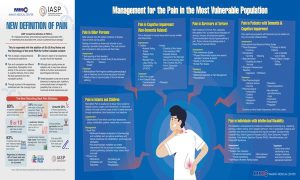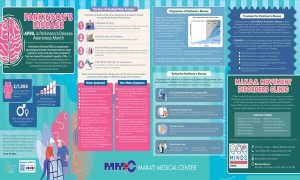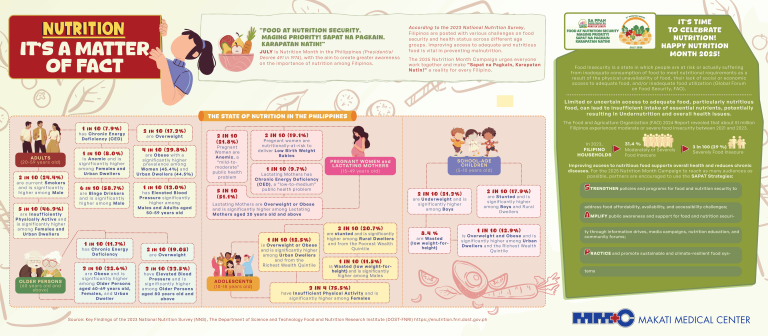Pregnancy is an exciting and joy-filled phase in the journey to motherhood. At the same time, it is a critical period that calls for close monitoring of a woman’s physical condition as their newborn’s health depends largely on prenatal care.
What is pregnancy care or prenatal care?
Pregnancy or prenatal care is medical care intended for pregnant women. At the first sign of being on the way, expectant mothers need to follow a pregnancy checkup schedule to ensure a healthy pregnancy until childbirth. During this series of visits, mothers can discuss important matters regarding their health and that of their baby with the doctor.
Another crucial aspect of the pregnancy checkup requires that soon-to-be-mothers undergo physical exams, weight checks, laboratory tests, and imaging scans. By taking these, women under prenatal care can be more confident about avoiding pregnancy-related complications such as high blood pressure or diabetes.
During pregnancy checkups, doctors can also prescribe prenatal vitamins to promote the healthy development of the fetus inside the womb. It then follows that prenatal care is a sure way for pregnant women to receive the right medication, nutrition, or treatment if needed.
What are the tests and scans needed during checkups?
Every prenatal visit to the doctor involves would-be-mothers to undergo several tests. Here are some of the most common tests and scans that are part of pregnancy checkups.
1. Genetic screening
- Pregnancy-associated plasma protein screening (PAPP-A)—Abnormal levels of this plasma protein may mean a higher risk for chromosome problems for the unborn infant or fetus.
- Human chorionic gonadotropin—The hCG hormone made by the placenta must be maintained at healthy levels to avoid the risk of chromosome problems.
During the second trimester, genetic screening involves taking blood samples that serve as markers, which provide information about the health of the fetus. For instance, one type of blood test measures the amount of alpha-fetoprotein (AFP) to ensure that it does not exceed normal levels; otherwise, there may be problems in the fetus’s internal organs.
Taking screening tests on both the first and second trimester instead of screening only once can help doctors identify as many as 19 out of 20 cases of Down syndrome early on.
For our prenatal package, the following tests are included:
o (1) Blood Typing ABO/RH
o (1) Congenital Anomaly Scan
o (1) Glucose Tolerance 3 Samples 75 Grams (OGTT)
o (1) HBsAG Anti-HBS
o (1) HIV Screening Test
o (1) Pap Auto (Laboratory Only)
o (1) Rubella IGG (German Measles)
o (1) Transvaginal or Pelvic Ultrasound
o (1) VDRL Qualitative
o (2) CBC
o (2) Urinalysis
2. Ultrasound scans
Ultrasound scans are imaging tests that can help verify the pregnancy due date. These scans may be done at various times to monitor the growth of the fetus for the entire duration of the pregnancy.
Ultrasounds are also a way for doctors to determine the number of fetuses, size of the fetus, gender, as well as diagnose an ectopic pregnancy, examine the mother’s uterus, and check the amount of amniotic fluid, among others.
The two types of scans for pregnant women are abdominal and transvaginal ultrasound, where the latter produces a sharper image as the instrument used is inserted directly into the vagina.
Transvaginal ultrasound is used during the first trimester of pregnancy where the uterus is still a pelvic organ. As early as six weeks, cardiac activity can be clearly demonstrated by the embryo. It is after the first trimester and the uterus has gone above the pelvis is when a trans abdominal ultrasound is done.
3. Amniocentesis
In this test, a small sample of the fluid that surrounds the fetus is taken by inserting a long thin needle through the mother’s abdomen going into the amniotic sac.
The cells in the amniotic fluid can provide genetic information that help doctors detect any open neural tube defects (ONTDs), which are problems that affect the way a baby’s brain or spine forms while growing inside the mother’s womb.
Amniocentesis also looks for any potential chromosomal disorder, which is a common cause of approximately 50% of first trimester miscarriages.
4. Chronic Villus Sampling (CVS)
5. Fetal monitoring
6. Glucose tolerance test
7.Group B strep culture
Caring for Prenatal Moms and Babies
Prenatal checkups benefit both mothers and their newborns, making them a must before, during, and after pregnancy. Obstetrics and gynecology doctors are equipped with the knowledge and experience in caring for prenatal moms and delivering babies. Find an expert in pregnancy care from Makati Medical Center.











